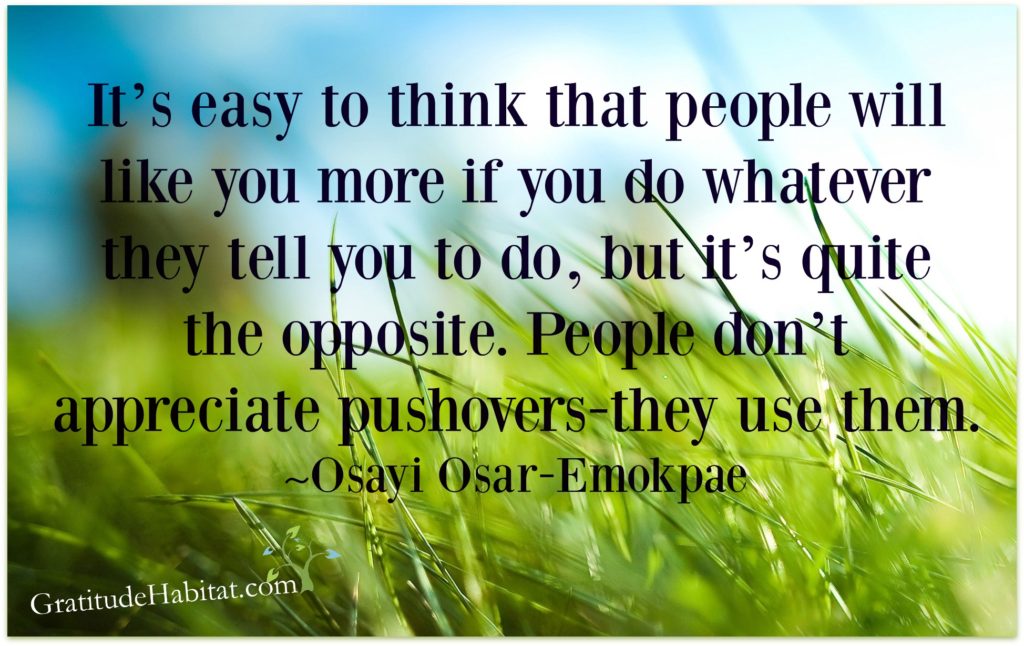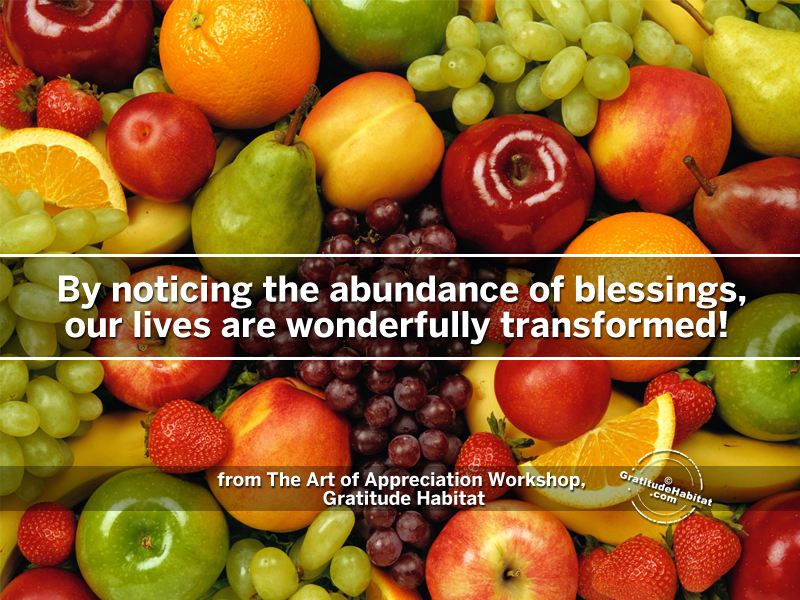Living In Gratitude: Stop Autopilot Apologies
You teach people how to treat you by what you allow, what you stop and what you reinforce. ~Tony Gaskins
We all know people who apologize for everything, even if they’ve done nothing wrong. Maybe we’re actually one of those people.
There are times when an apology is warranted, but when we say we’re sorry for anything that makes us remotely ill at ease, this can quickly become a harmful habit, lowering our self-esteem, justifying other people’s poor behavior or actions, and turning us into a pushover.
Have you ever apologized when someone bumped into you in a crowded restaurant or store? Or when a peer critiqued your work? How about when someone did a chore or task that you were supposed to do but didn’t? Or maybe when you wanted someone to explain something in more detail?
This automatic apologetic reaction many of us have is used to diffuse confrontation, placate others and avoid making things awkward. That unwarranted apology automatically lets others know we believe we are at fault, even if we’re not.
And the more we make this autopilot apologizing a routine, the more we’ll use it in situations that DO matter. They also communicate that we’d rather be agreeable than honest. Over time, people will begin to see us as pushovers, someone who will take the blame, be the fall guy or girl and can (and will) be taken advantage of.
So, how do we stop this pushover behavior?
Have An Apology Recap
When we find ourselves issuing an apology, we should ask ourselves two key questions.
- “Did I actually do something wrong?”
- And if not, “Did I want to communicate that I think I did something wrong?”
Taking these few minutes to self-reflect helps us to reprogram our brains to separate unnecessary apologies from the real ones.
Alter Our Vocabulary
For many of us, the word ‘sorry’ is akin to a pattern of speech, like uttering ‘um’ or ‘oh’. When we start taking notice of when, where and to whom we are apologizing, we can adjust our vocabulary. Saying “excuse me” or “pardon me” work just as well in many cases and don’t impart a sense of wrongdoing.
Ask Questions Without Undermining Ourselves
Many people often say, “I’m sorry” when they are requesting clarification or assistance. We shouldn’t have to apologize for wanting additional information. ”Can you please clarify what you mean by that?” or “Could you provide more details?” is perfectly acceptable. Concerned about being polite? Add in a, “If you don’t mind my asking” instead of “I’m sorry”.
Trade Blame for Gratitude
When someone does something that we appreciate, saying thank you rather than apologizing for not doing it ourselves is the best way to respond. When we say we’re sorry, we burden that person with the need to reassure us that it’s okay that we didn’t do the dishes, pick up the mail, call the repairman, make dinner reservations. By saying “thank you,” we make them feel appreciated, which in turn makes them happy. This, of course, doesn’t give us carte blanche to stop contributing just because we’re appreciative.
If someone offers feedback on our work or a project, thank them for taking the time to review it and provide a critique rather than apologizing for what wasn’t quite right. When we communicate honestly with others, we should thank them for listening and for taking the time to understand instead of apologizing for taking up their time or ‘unloading’ on them.
Reflecting, making changes to our vocabulary, asking clarifying questions and trading apologies for appreciation are all ways we can stop our autopilot apologies.
My your day be filled with gratitude and good things.
This T.H.I.N.K. print is a gentle reminder to consider what we say before we say it. Exclusive to Gratitude Habitat, it is available in our Gratitude Gift Shop in both 8 X 10 and 18 X 24.







